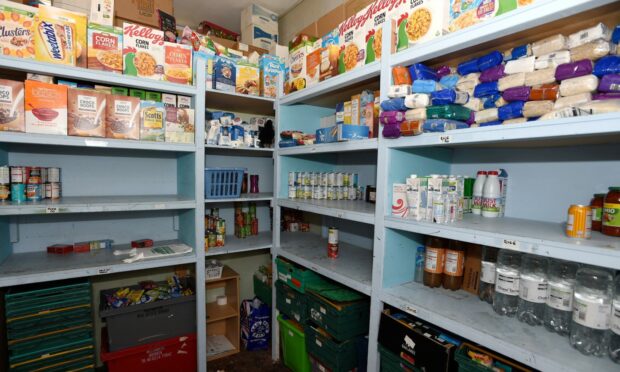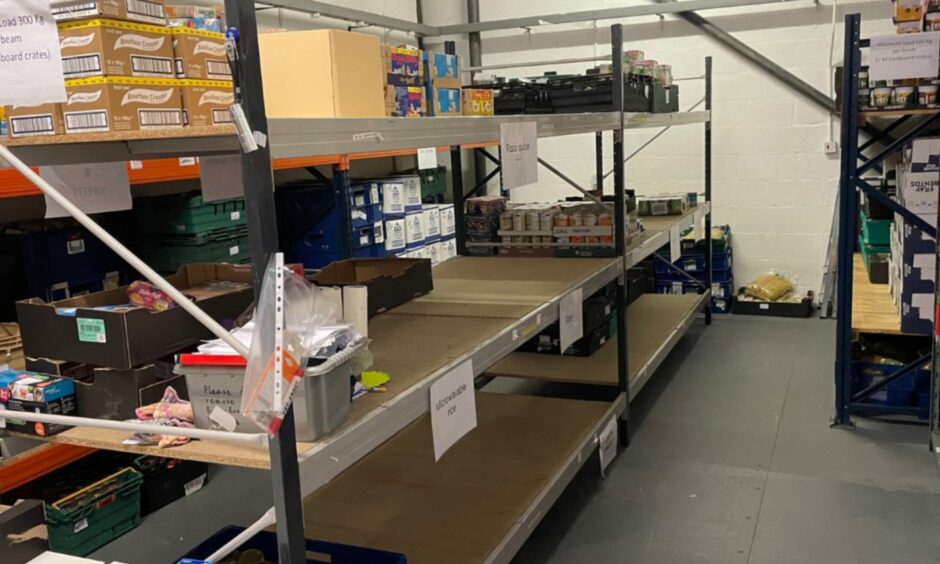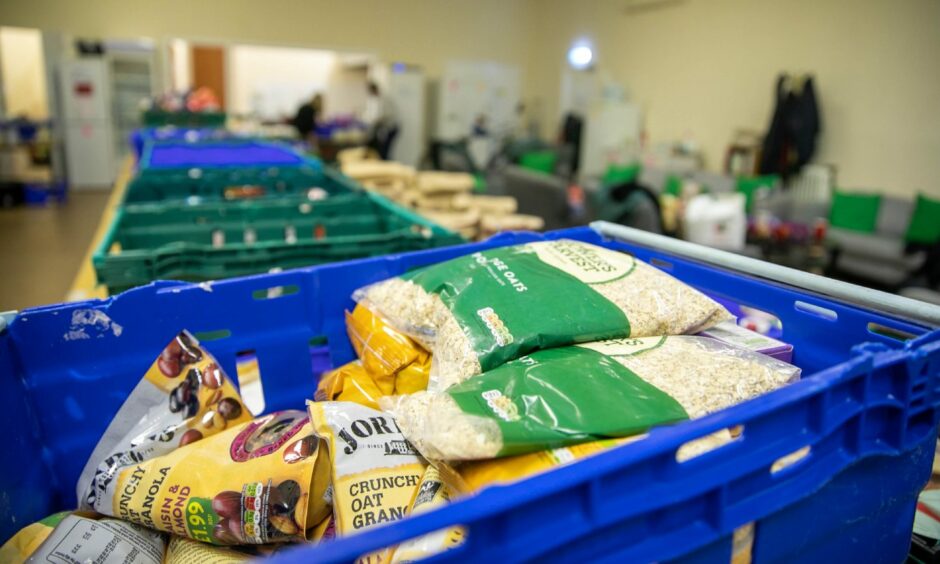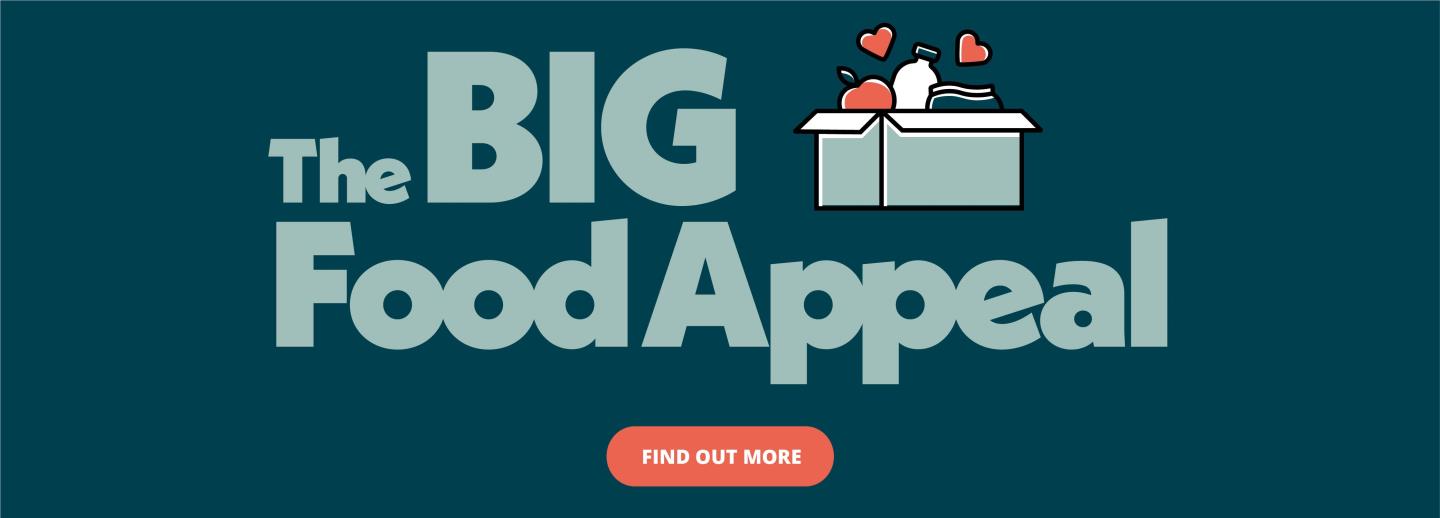Scotland’s food banks have warned the Scottish Government that they are struggling to meet a massive rise in demand amid the cost-of-living crisis.
The heads of the Trussell Trust and the Independent Food Aid Network (IFAN) wrote a joint letter to Social Justice Secretary Shona Robison, saying they are having to ration the supplies of people relying on their services as volunteers are “over-stretched and exhausted.”
One in three parcels are being given to children and demand is currently outstripping supply.
Last week UK energy regulator Ofgem said the typical household energy bill is expected to rise by a further £800 in October – now bringing it to £2,800 a year.
‘Growing number of parcels for children’
Polly Jones, of the Trussell Trust, and Sabine Goodwin, of IFAN wrote in the letter, shared by The Herald: “Since the cut to Universal Credit and the start of the cost-of-living crisis in October 2021, demand for charitable food aid has steadily increased.
“People who were already struggling to afford food are being hit the hardest as energy, food and travel costs all become out of reach.
“Alarmingly, we are seeing a growing number of parcels being provided for children, more than one in three food parcels issued in the Trussell Trust network last year were for children. And the next 12 months look bleaker still.
“Many foodbank teams are struggling to cope as demand outstrips resources and they make difficult decisions about rationing supply and dipping into financial reserves.
Food banks in the north-east have also been experiencing shortages.
Aberdeen North Foodbank has reported that “something has to give” if they are to meet the increasing demand.
A list of demands to the Scottish Government
Ms Jones and Ms Goodwin set out a list of demands to the Scottish Government to alleviate the crisis.
They are calling for:
- The Scottish Child Payment to be increased to £40 per week from £20 per week for each child. They also want to see take up rates, which are currently at 70 per cent increased, and warn without these measures the Scottish Government will not meet its target for reducing child poverty.
- The Scottish Welfare Fund (SWF) to be used as a priority cash first service to help people facing financial crisis.
- The cost-of-living crisis to be classified as an “exceptional circumstance” by the SWF enable people to access more than three payments each year.
- The SWF budget must be increased to help local authorities meet rising demand next year.
A Scottish Government spokeswoman said: “We agree with a cash-first approach and it is embedded in our work. Our draft plan for ending the need for food banks takes forward a cash-first approach so people can access food and other essentials with dignity and choice.
“In addition as well as plans to increase the eligibility to our Best Start Foods benefit, we will also move it to a cash payment instead of pre-payment card.
“Our Scottish social security support also takes this approach ensuring benefits support people directly. That is why we have introduced a range of financial support not available elsewhere in the including the Scottish Child Payment.
“The Scottish Government has already taken action to support people as much as possible, with almost £770 million per year invested in cost-of-living support.
“We have increased eight Scottish benefits by 6%, closer to the rate of inflation, and introduced a range of family benefits not available elsewhere in the UK.”
Households to be given rebate to help with rising bill costs
Chancellor Rishi Sunak announced last week that every household in the UK will be given a £400 rebate off their gas and electricity bill this winter.
This is part of a £21 billion package to deal with the cost-of-living crisis.
Also included are grants which will be funded by the introduction of a £5 billion windfall tax on oil and gas companies – a significant U-turn.
Around eight million households on means-tested benefits will receive an extra £650 in direct payments. Pensioners who qualify for the winter fuel payment will receive an additional £300. Those who are disabled will receive just an extra £150.
But some have criticised this as simply not enough to meet the needs of people who rely on food banks.
The Big Food Appeal
The Big Food Appeal aims to raise awareness of the plight people across Grampian and the Highlands face every week and dispel some of the myths surrounding foodbanks while encouraging readers to do what they can to help.
Our interactive map shows the foodbanks near you, and we are working hard to debunk some of the myths around who can access such help.




Conversation